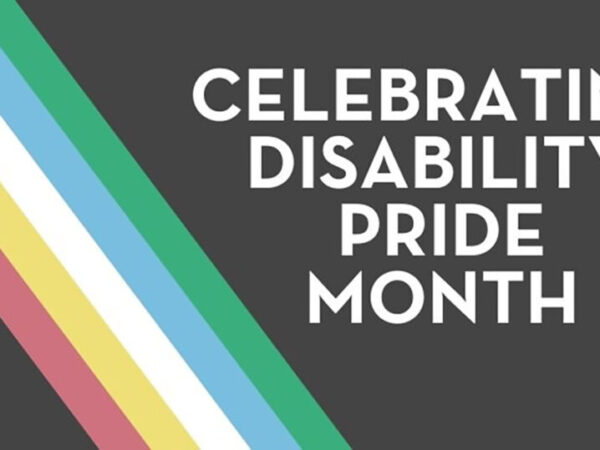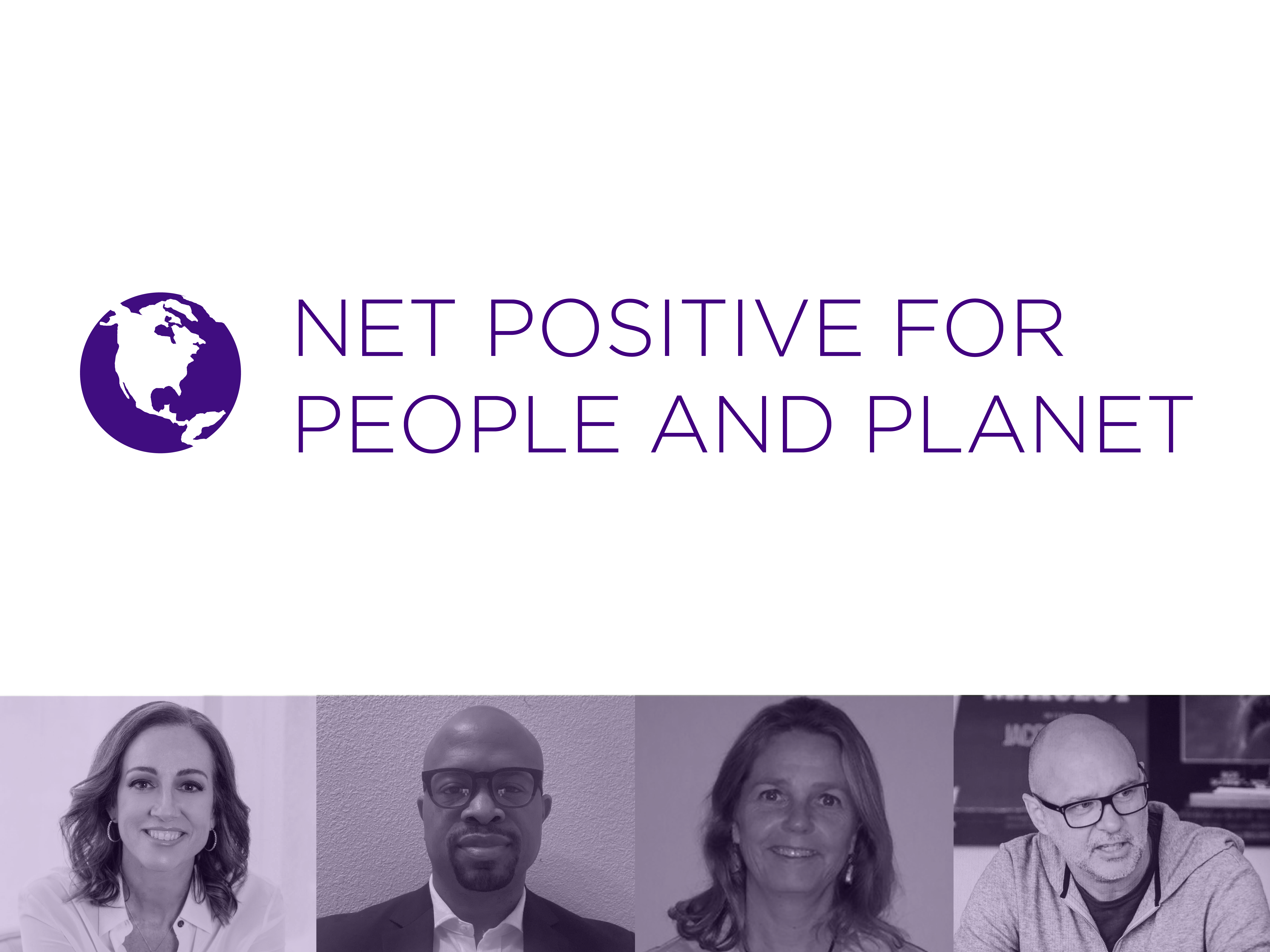In celebration of Earth Month, we sat down with several Amyris executives to understand how they view their role in the larger context of Amyris’ mission to build a more sustainable future for all. From team members who are exclusively focused on our sustainability goals to those who are working to scale our positive impact for the long term, you’ll see that sustainability is our common purpose, embedded throughout the entire business and requiring cross-discipline collaboration.
Read more to see how our leaders view the intersection of their daily work with Amyris’ bold vision for a sustainable future.
Introduce yourself and tell us what excites you most about your role at Amyris?
- Josh Handy, VP of Packaging Innovation & Sustainability (JH): “I’m one of the recent additions to the Amyris team and I’m supporting our transition to more sustainable packaging across our entire family of brands. We want the outside of our products to be as beautiful and good for the planet as the inside!”
- Beth Bannerman, Chief Engagement & Sustainability Officer (BB): “My responsibility is to frame the environmental, social, and governance (ESG) agenda and strategic goals, and to lead the communications strategy to support Amyris’ sustainability and growth goals. What energizes me most is leading a cross-functional team to deliver on work that really matters to people and the planet. Another part of my role that is exciting is the opportunity I have for regular engagement with different stakeholders, from the board and investors to employees, customers and NGOs.”
- Solomon Wilkins, VP of Diversity, Equity, Inclusion & Belonging (SW): “What excites me most about my role at Amyris is the privilege of helping employees understand why this work matters to them. When people attach a personal reason to anything, they become more engaged, committed and invested. I also get excited about helping leaders understand the business value of DEIB. Study after study confirms that organizations with diverse leadership teams are 35% more profitable. When you marry the personal and professional benefits of this work, you create a thriving organization for employees at all levels.”
- Wendy Goldsby, VP of Environmental Health & Safety (WG): “Having worked at Amyris for nearly 14 years, I’ve seen the company through many changes. Throughout the years, I have been consistently impressed by our talented staff and their willingness to work collaboratively to review work programs and identify solutions that ensure our people and our environment are healthy and safe. It’s extremely rewarding to play a role in Amyris’ work to raise the bar for safety and sustainability.”
This Earth Month’s theme is centered around investing in our planet – what is one way that you’ve invested in sustainability, either at work or at home?
- JH: “I have been on a mission for the last 20 years to prove that the bigger you get as a brand, the more good you can do for people and the planet to demonstrate that business can be a force for good. To that end, I’ve chosen to only work with mission-driven brands and use my talents as a designer and innovator to make what is sustainable, also desirable – and that is why I’m here.”
- BB: “This month, we’ve already kicked off three key pieces of work: the production of our second annual ESG report, an inventory of our greenhouse gas emissions and launching lifecycle analyses of our ingredients. We are collecting more data about our environmental and social impacts – the more we know, the better we can do.”
- SW: “Recently, and at the recommendation of my 10-year-old daughter, our family decided to eat less meat. The production of meat is one of the biggest contributors to climate change and the pollution of landscapes and waterways. By eating less meat, we can help reduce the negative impact the meat industry has on the Earth.”
- WG: “At Amyris, we are continuously investing in the health of our own people and planet. As part of the Environmental Health and Safety (EHS) team, we develop tools for risk assessment and product safety testing programs to promote a safe and healthy workplace and products. We also work to identify and promote ways to repurpose or recycle wastes from office to manufacturing.”
Amyris continuously strives for net positive, for the environment and also across all aspects of the business – how do you see the work you do at Amyris tying back to this goal of leaving a net positive impact on the planet and people?
- JH: “For many years, there has been a narrative that you had to compromise on price, efficacy or aesthetics to make sustainable choices. That is no longer true. I want to ensure that we make considered and mindful choices when we are selecting and designing packaging for our brands, and find, sponsor, partner, develop, and innovate technologies where solutions don’t exist.”
- BB: “Doing no harm to the planet is not going to be enough. Humans are consuming more and producing more waste, including carbon emissions, faster than the Earth can recover. We need to give consumers better choices – sustainable products and packaging that promote regeneration. Amyris has proven its ability to scale sustainable ingredients without relying on petroleum or vulnerable plants and animals for its production.”
- SW: “DEIB and net positive should all be synonyms of each other, because net positive occurs when more positive than negative happens. When a DEIB strategy is intentionally introduced to an organization, more positive than negative happens! Our approach to DEIB at Amyris will be about growing our brand, creating an environment of equity, inclusion and belonging, and attracting, developing and retaining the best and brightest talent. This approach will positively impact Amyris’ culture and our financial future.”
- WG: “On the EHS team, our work is intrinsically tied to this goal. EHS is all about establishing a safe and healthy working environment, by developing and implementing programs to prevent workplace injuries, creating a healthy workplace for our employees, ensuring our products are safe to use and minimizing what we dispose of as waste.”
As a consumer yourself, how easy or challenging have you found it to make changes in your personal life that adhere to a more sustainable lifestyle? What advice can you offer to others as they try to become a more conscious and sustainable consumer?
- JH: “It’s important to remember that sustainability is a journey and not a destination. As a company that manufactures products, it is our responsibility to make them easy to repurpose, reuse, refill, or recycle. I do get tetchy when I use products at home that make this difficult, knowing that there are plenty of solutions out there for most things that end up in the landfill. But even this frustrating experience as a consumer ultimately informs how we advance forward and continues to remind me that it’s about progress, not perfection.”
- BB: “I’m sure I’m not unique in observing how commonplace it has become to market a product as sustainable, when it is not. As a consumer, it is challenging. On the other hand, when you find communities of experts – social media is a big help here – they can help you navigate toward companies that are making real efforts to be more sustainable. It’s a journey – nobody is perfect. But for me, I’m impressed by the companies that continually work toward becoming more sustainable.”
- SW: “Change comes pretty easy for me because the work I do involves a lot of change management. My advice to others is to identify your why. Why does a sustainable world matter to you, and the future generations of your family? When people identify their why, they become personally invested in the outcomes. Without identifying your why, your intent to live a sustainable lifestyle won’t be sustainable long-term.”
- WG: “Sustainable lifestyle choices are linked to behavior, and the current culture around consumerism and instant gratification is to buy new rather than repair or repurpose. It takes a change in mindset not to settle for a quick and easy solution and instead opt for solutions that are more beneficial for the long term. I find it helpful to start with small, simple measures that can be implemented in our daily life – for example, making the shift to one new sustainable alternative that you’ve researched and vetted, then slowly adding more sustainable solutions into your routine. While making the shift to a more sustainable lifestyle may be overwhelming at times, if we focus on the things that we can change, little by little we will help our planet.”
What is one thing that you are excited for or that gives you hope for the future of the planet?
- JH: “When I started working as a designer in New Zealand 28 years ago, sustainability was at best a “nice to have.” It’s now the dominant narrative in the world and impacts every single industry, that’s progress, baby!”
- BB: “I recently completed training and earned a certificate of membership in the Climate Reality Leadership Corps, which enables me to work with former Vice President Al Gore and world-renowned scientists and communicators to continue to learn about the climate crisis and ways that, together, we can solve it. It’s expanded my network to a huge community of people – folks in the SF Bay Area where I live and around the world, who I now collaborate with and learn from. It felt like stumbling into a huge party – where you didn’t know anyone at first, and then realized – oh, these are my people. I felt at home instantly and it gives me hope that we still have time to make a difference for our beautiful planet.”
- SW: “What gives me hope for the future is young people. As a father to three super smart kids, with one oldest being a freshman at Berkeley, majoring in Mechanical Engineering, some of the conversations we have about the future are really inspiring. Young people are smart, ambitious and courageous, and I have no doubt they will be the generation that makes the world more sustainable.”
- WG: “I am excited that we are back to thinking globally about climate change. It’s great to see that we have rejoined the Paris Climate Agreement and that there appears to be growing acceptance toward energy and waste reduction measures.”
Learn more about Amyris’ commitment to sustainability by downloading Amyris’ inaugural ESG Report.

